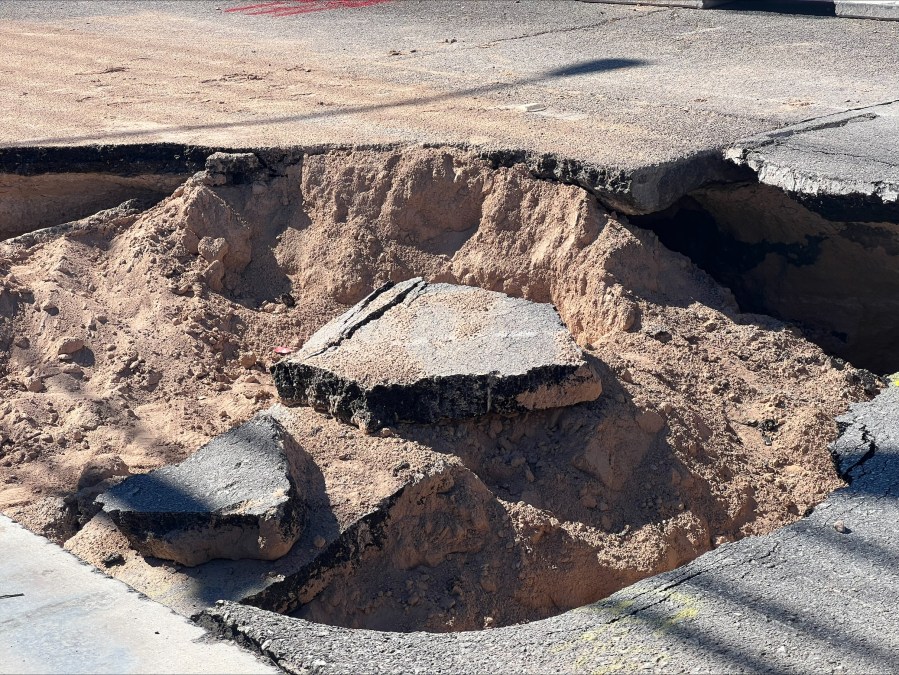In Nevada, lawmakers are stepping up to address a major infrastructural challenge that recently laid bare the vulnerabilities of HOA-governed communities. The crisis at Somerset Park, a townhome community in Henderson, serves as a stark reminder of what can go wrong when critical infrastructure maintenance and financial mismanagement intersect. The failing underground water distribution system in the community caused significant safety hazards, including massive leaks and sinkholes. Without the means to address the problem itself, Somerset Park’s homeowners’ association (HOA) was left scrambling, forcing local government intervention. To prevent such emergencies in the future, Nevada lawmakers have introduced Assembly Bill 10, a proactive measure aimed at empowering local governments to act when critical infrastructure fails in similar communities. Let’s explore the cautionary tale of Somerset Park, the implications of AB10, and the potential impacts of this proposed legislation.
At Somerset Park, the underground water system began failing on a large scale, resulting in leaks that caused considerable property damage and sinkholes that posed serious safety risks to residents. These issues, however, were compounded by the long-standing financial mismanagement of the community’s HOA. While the current management company worked to address the financial situation, it faced significant hurdles due to a legacy of embezzlement and poor budgeting practices from the previous management. Consequently, the HOA was left with insufficient financial reserves and no means to cover emergency repairs. As conditions worsened and safety became a pressing concern, the City of Henderson was forced to step in to address the crisis, replacing the entire water distribution system at a cost of approximately $600,000. To recover this expense, the city implemented a lien-based repayment plan requiring Somerset Park homeowners to bear the financial burden through repayment obligations.
This crisis laid bare the vulnerabilities of HOA-governed communities when it comes to critical infrastructure maintenance. Typically, HOAs bear responsibility for repairs, maintenance, and financial management in their communities. However, inadequate financial reserves or mismanagement, coupled with the high costs associated with infrastructure failures, can leave communities in precarious situations. Not only do these emergencies underscore the importance of effective financial oversight, but they also highlight the broader issue of public safety when local infrastructure fails and HOAs are unable to respond.
To address such vulnerabilities, Nevada lawmakers have introduced Assembly Bill 10 (AB10). The bill seeks to ensure that local governments have the legal authority to step in when water or sewer infrastructure fails in HOA communities, particularly when the HOAs themselves are financially incapable of resolving the issue. If enacted, AB10 would empower local governments—at both the city and county levels—to repair or replace damaged systems and implement repayment agreements for affected homeowners. Importantly, the bill removes the option for homeowners to opt out, requiring compliance to either fix the infrastructure under HOA oversight or accept municipal intervention. This approach ensures that utility services and public safety are not compromised due to financial disputes or limitations within individual communities.
One of the key benefits of the bill lies in its flexibility. AB10 allows local governments to evaluate the severity of a given situation and decide whether intervention is necessary. This discretion ensures that limited municipal resources are allocated to the most pressing cases, providing a safety net for communities in crisis without overburdening government budgets.
However, the bill is not without its challenges. Some critics argue that repayment plans could impose additional financial strain on homeowners who are already struggling. Striking a balance between assisting homeowners with infrastructure maintenance and requiring repayment is a delicate issue. Lawmakers will need to implement clear guidelines, transparent repayment timelines, and safeguards to prevent misuse of this authority by municipal governments. Without these checks, some fear AB10 could create as many complications as it aims to solve.
Despite these concerns, Assembly Bill 10 has already passed through the Assembly’s Committee on Government Affairs, signaling bipartisan recognition of the need to address these pressing infrastructure issues. The bill will undoubtedly undergo further scrutiny and possibly amendments as it moves through the legislative process. Lawmakers remain committed to addressing the concerns of both homeowners and community advocates to ensure the bill protects residents while maintaining fairness and transparency.
The Somerset Park situation has become a cautionary tale for other HOA-governed communities across Nevada, emphasizing the need for financial accountability and preparedness when it comes to critical infrastructure. If passed, Assembly Bill 10 could signal a significant shift in public policy, providing a much-needed safety net for HOA communities while ensuring that public safety and utility access remain priorities. As Nevada residents and lawmakers alike follow the progress of this bill, the lessons of Somerset Park serve as a reminder of the importance of proactive planning, oversight, and accountability in keeping communities safe for years to come.
